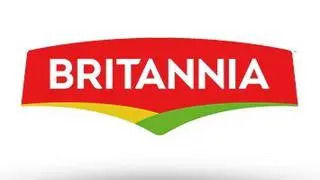In the two years he has spent at the helm of Metro Cash and Carry, India’s largest operator in the organised wholesale space, Arvind Mediratta, MD and CEO, has taken the fight for growth to his former employer Walmart’s strongholds in the northern and western markets.
The store count for the Dusseldorf-based wholesaler, the first foreign giant to enter India, now stands at 24. Mediratta plans to double this in the next three years. Closest rival Walmart opened its 21st store last month and hopes to reach 50 by 2020.
Since both are private companies, the latest financial figures are hard to come by. Metro reported FY17 sales of ₹5,632 crore, while for the 15 months ended FY16, Walmart’s sales in India was close to ₹4,000 crore.
Metro currently has six stores in Bangalore, four in Hyderabad, two each in Mumbai and Delhi, and one each in Kolkata, Jaipur, Jalandhar, Zirakpur, Amritsar, Vijayawada, Ahmedabad, Surat, Indore and Lucknow.
In an interview with BusinessLine , Mediratta said that the German wholesaler is going to consolidate its share in the northern and western markets, particularly Punjab, UP, Gujarat and West Bengal. Walmart has five stores in Punjab and four in UP, and is making inroads in Andhra Pradesh and Telengana – Metro’s backyard – with four stores in the region.
Future plansMediratta is not cowed, either by the US giant’s commitment to invest ₹3,200 crore in the Indian market over the next three years, or the onslaught of e-commerce in the grocery retail sector. Instead, his future plans include strengthening the sales contribution from the HoReCa (hotels, restaurants, cafes) category, widening the product suite and enrolling a larger number of clientele on digital platforms.
Metro’s German parent, for its part, has made commitments to invest ₹1,690 crore for its India operations till 2020. HoReCa accounts for 15 per cent of the sales for Metro in India. “We want to expand this segment into a wider range of products, such as crockery, appliances, electronics, besides fresh foods,” said Mediratta.
The majority of a cash and carry business’ clientele are small retailers and business owners. Metro has over 18-lakh active businesses as part of its clientele. Industry estimates say there are over 1.2 crore kirana stores and that 3 per cent of all consumer products are traded through the organised wholesale route.
Metro is helping small retailers on to digital platforms, be in payment or on social media. “We’ve given PoS machines to 100 retailers in Hyderabad and Bengaluru [where Metro has the highest number of stores] so that customers can make card and mobile wallet payments. We’re also encouraging clients to create social-media groups for the 200-300 households that they serve; this can personalise service and they can give customers special discounts. This way, retailers don’t lost business to e-commerce players.”
Metro is also tieing up with start-ups to provide GST accounting platforms to their clients and to extend short-term loans. Last month, the wholesaler launched a membership programme for Uber drivers in Bengaluru, which gives them access to a wide range of car accessories, oils, lubricants, cleaning products and confectionery and beverages (the last two for customers ). Metro plans to take this programme to their other markets over the next 6-9 months.
“In the long-term, I believe grocery will be safe from e-commerce,” said Mediratta. It’s difficult for e-commerce players to maintain cold chain integrity, especially if the ticket value is low, because then the delivery costs become very high, he explained. So the advantage still lies with players who trade in scale. Another area of focus for Metro is doubling its share of sales in private label products, particularly in organic and pesticide-free food and home-care products, from its current single-digit contribution to sales.
ChallengesWhile Metro and Walmart were initially forced into the wholesale business in India because of laws barring foreign investment in multi-brand retail, they’re quickly building scale and amassing market share in the wholesale game.
The two multinational giants will soon face challenge from the Indian players. Reliance Industries’ retail operations also plans to focus on the business-to-business segment, while Kishore Biyani’s Future Consumer has tied up with UK’s Booker Group for a wholesale JV in India.
The fate of this venture, though, hangs in balance after Tesco, also a retailer in the UK, bought out the Booker Group this year. Tesco is present in India through a joint venture with Tata’s retailing arm Trent Hypermarket.








Comments
Comments have to be in English, and in full sentences. They cannot be abusive or personal. Please abide by our community guidelines for posting your comments.
We have migrated to a new commenting platform. If you are already a registered user of TheHindu Businessline and logged in, you may continue to engage with our articles. If you do not have an account please register and login to post comments. Users can access their older comments by logging into their accounts on Vuukle.